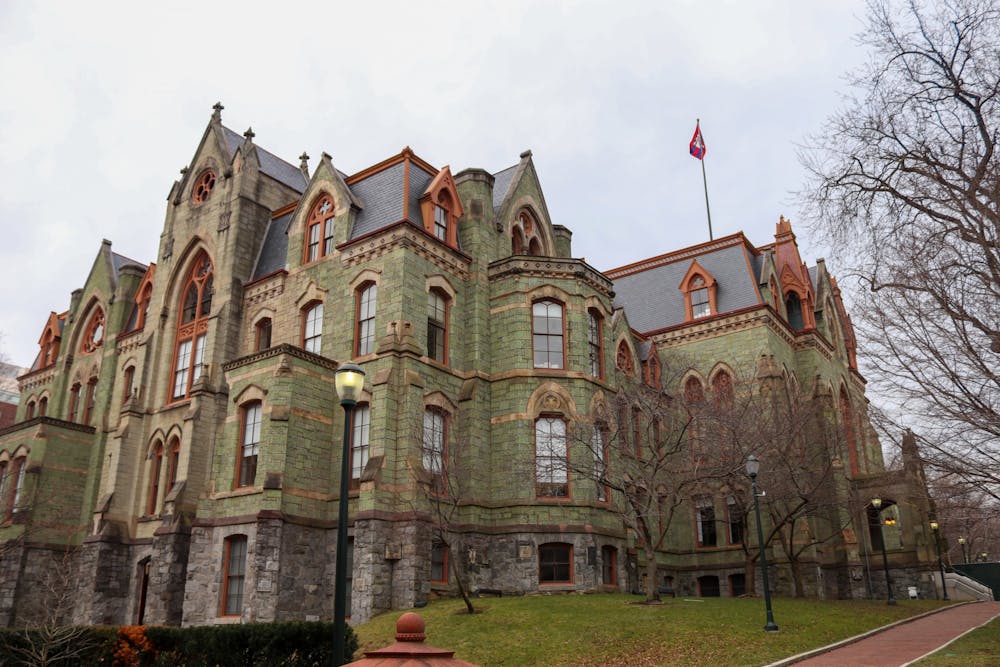
A Penn Faculty Senate committee recommended that the Senate examine how the University balances academic freedom and tenure protections with "faculty misbehaviors."
In its 2021-2022 annual report, published in May of last year, the Faculty Senate Committee on Faculty Development, Diversity, and Equity recommended that the Faculty Senate create a committee to examine “University and school-level procedures related to balancing academic freedom and tenure protections with the need for faculty sanctions (including possible tenure removal) for faculty misbehaviors."
The recommendation comes amid the University's disciplinary proceedings against tenured University of Pennsylvania Carey Law School professor Amy Wax, who has a history of making inflammatory statements. Wax recently filed a grievance against Penn Carey Law Dean Ted Ruger, accusing him of “crushing” her academic freedom of speech by pursuing a "major sanction" against her.
For the 2022-2023 school year, SCFDDE has been charged with considering the needs of the Penn community who feel “victimized” by faculty, especially in relation to academic freedom. In response to a request for comment, the Faculty Senate directed The Daily Pennsylvanian to SCFDDE's annual reports.
"The Senate Committee on Faculty Development, Diversity, and Equity will release its annual report later this spring (tentatively, May 2023)," the Senate wrote. "It would be inappropriate for the committee to comment on its ongoing work."
Penn’s Faculty Senate serves as the representative body for full-time faculty. The Faculty Senate can approve University policy changes under its purview and direct focus toward issues raised by members of its Senate Executive Committee.
Keith Whittington, a Princeton professor and committee member of the Academic Freedom Alliance, said that academic freedom protects controversial actions in both the classroom and in research, and statements that are delivered in the public sphere more generally.
Academic freedom at the University is upheld by tenure protection. Tenure protection includes freedom of speech, teaching, research, and publication. It also protects faculty against influences that could restrict the exercising of these freedoms in their area of scholarly interest, according to the Faculty Handbook.
Penn Carey Law professor Anita Allen told the DP that Penn has “a strong tradition of academic freedom, which is honored through a system of faculty governance, as well as by the provost and president.”
Allen added that Penn’s status as a private university means that it does not face external political pressure with regard to tenure in comparison to some state universities. During the 2021-2022 school year, Allen provided SCFDDE with a "legal framework" related to the committee's conversations about "the role of faculty governance in balancing academic freedom and tenure protection with the goals of developing an inclusive community where all are welcomed and can thrive."
Allen said that an important distinction should be made between a professor making an unpopular statement versus making one while engaging in misconduct that violates University rules. Faculty misconduct at Penn includes research misconduct, sexual harassment, violence or aggression, violation of federal policies, and other University regulations as stated in the Faculty Handbook.
“People often think that faculty are sanctioned or removed due to their controversial statements, but the decision has more to do with violating University rules and common decency laws," Allen said. "A faculty who abuses or humiliates or taunts or directly harms students in class... [is] a violation that is subject to sanctions."
A clear distinction should be made between public statements protected by academic freedom and individual statements made to particular students, Graduate School of Education professor Jonathan Zimmerman told the DP.
“All meaningful political statements can offend somebody, but to make comments that directly target certain students in her supervision is classroom misconduct,” Zimmerman said.
With regards to Wax, who has ignited conversation about this topic among the Faculty Senate, Zimmerman said that she warrants a disciplinary sanction if she engaged in misconduct, but not tenure removal — which he said should be saved for the most "egregious" kind of misconduct.
As an example of "egregious" conduct, Zimmerman pointed to the case of Penn professor Rafael Robb, whose tenure was removed after being convicted of murdering his wife in 2007. He said University processes should proceed carefully, as removing Wax would set a “frightening precedent” that may change the way people interact for fear of being accused of misconduct, which ultimately “inhibits learning in the classroom.”
“We can use this time to reaffirm our commitment to absolute protection for every political statement 100%, but also have a real conversation about misconduct in the classroom,” Zimmerman said.
Allen said that the University could use this opportunity to communicate more clearly to the community regarding what faculty freedom and academic responsibility entail. The University might also benefit from conducting an audit to identify any gaps and areas of unclarity and remove some concerns of bias in favor of academic freedom or in favor of academic responsibility, Allen added.
Whittington, however, said that institutions should be very cautious in rethinking tenure practices, as it is possible to learn the wrong lessons when drawing from a single bad case.
“I just think it would be a dramatic mistake, and very, very risky from an academic freedom perspective, to go down that road," Whittington said. "I'd want a lot more evidence that there were real problems for tenure before [a] rush to change it."
The Daily Pennsylvanian is an independent, student-run newspaper. Please consider making a donation to support the coverage that shapes the University. Your generosity ensures a future of strong journalism at Penn.
Donate







